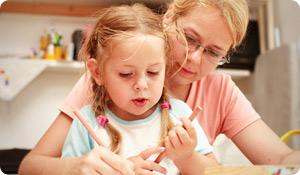
Volunteering can be powerful. If you're open to it, you'll wind up learning new skills, making new friends, and even changing lives—yours as well as someone else's.
Here are some ideas to get you started.
Volunteer Your Time
If you love babies and have time to give, hospitals with neonatal intensive care units (NICU) are often in need of "cuddlers."
These are volunteers who provide comfort to preemies (babies born before 37 weeks gestation). Because it is important for babies to have human contact, cuddlers fill in when parents can't be present. Cuddlers receive training but provide no patient care—just loads of rocking and a huge helping of love. Local hospitals may also need volunteers to read, color, or play board games with sick children undergoing treatment.
At least three national data banks: Volunteer Match (www.volunteermatch.org), The Volunteer Family (www.thevolunteerfamily.org), and The President's Volunteer Service Award (www.serve.gov) provide a plethora of volunteer opportunities.
Make Money Matter
Of course, writing a check to a charity that supports children is one of the most obvious ways to make a difference but there are other ways to get involved with fundraising for causes you believe in.
On any given weekend there are charity walk/runs. Ask friends and neighbors to donate by sponsoring you a dollar or so for each mile you run. It's a great way to get fit and do good at the same time. The Valerie Fund (http://www.thevaleriefund.org/) is one well-known cancer support group that sponsors 5K run/walks all over the country.
Become an Advocate
Advocacy is another way you can make a difference in matters affecting children's health.
You can become an advocate by having a letter about a cause that matters to you published in the editorial section of your local newspaper. Or, contact your legislator to let him or her know where you stand.
Go to The U.S. Government's Official Web Portal (www.usa.gov) or call the U.S. Capitol at: (202) 224-3121 to be connected with your members of congress. Telephone calls are usually taken by staff members. Ask to speak with the aide who handles the issue you'd like to discuss. You can do the same by contacting a government agency or department directly. The U.S. Department of Health and Human Services (www.dhhs.gov) for example oversees many issues as well as legislation that impacts children.
Support Kids With Cancer
Every year thousands of children need bone marrow transplants, a procedure which may be their only chance of survival. Marrow is the tissue found inside bones that produces red blood cells, white blood cells, and platelets that fight infection, carry oxygen and control bleeding.
About 70 percent of patients with leukemia or other cancers do not have a genetically-matched family member who can donate on their behalf. Patients and donors must have matching tissue types. Minority groups are especially in need of volunteer donors. If you are in good health, you may be eligible to join the national registry. Go to the National Marrow Donor Program (www.marrow.org) for more information.
Other Groups That Help Children
Volunteers constitute 96 percent of the work force at the American Red Cross (www.redcross.org). Every year the international organization responds to more than 70,000 disasters, including approximately 150 home fires every day.
You can also learn first aid, CPR, swimming, and other health and safety skills through Red Cross courses and then put your certifications to use in another avenue that helps children.
Aside from disaster relief, coordinating blood banks is another Red Cross endeavor. About half of the nation's blood supply—six million pints annually—is collected by more than 155,000 Red Cross volunteers. Without an adequate blood supply a sick child could be in danger of not receiving surgery or adequate medical treatment for many diseases.
Muscular Dystrophy is a genetic disorder that weakens the body's muscles. Children diagnosed with MD gradually lose their ability to walk, sit upright, and even breathe easily.
In its most common form, between 400 to 600 male babies inherit the disorder each year. (Girls typically have milder MD symptoms but become carriers of the defective gene.) Volunteers are the backbone of The Muscular Dystrophy Association's (www.mda.org) programs which include a summer camp, support groups, seminars, and the national telethon.
Approximately 30,000 children and adults in the United States have cystic fibrosis, a life-threatening genetic disorder that causes mucus to build up and clog some of the organs in the body in particular the lungs and pancreas. About 1,000 new cases of CF are diagnosed each year.
The Cystic Fibrosis Foundation (www.cff.org) is a nonprofit, donor-supported organization that works to find a cure for cystic fibrosis and to improve the quality of life for those with the disease. Great Strides, a charity walk/run, is one of the group's primary fund-raising vehicles. Since the first walk in 1989, $214 million has been raised to support vital research and care programs. Thanks in part to this well-run foundation's investments in innovative research and comprehensive care, many people with CF can expect to live well into their 30s and 40s today (previously generations often didn't live long enough to attend elementary school.)
Sources:
The Volunteer Family
www.thevolunteerfamily.org
Volunteer Match
www.volunteermatch.org
The Children's National Medical Center
www.childrensnational.org
Presidential Service Awards
www.presidentialserviceawards.gov





